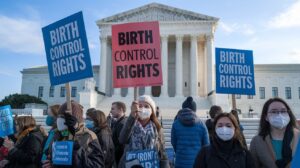Menendez brothers case: Erik and Lyle Menendez Parole Eligibility After Judge Resentences — What This Means for Their Future & American Justice
Erik and Lyle Menendez’s parole eligibility has captured national attention after a judge resentenced the brothers, making them eligible for parole after more than three decades in prison. This article dives into the details of this historic ruling, its implications for the Menendez brothers, and what it means for the American justice system. Whether you’re a true crime enthusiast or simply following current news, this post provides all the answers.
What Led to Erik and Lyle Menendez’s Parole Eligibility?
Erik and Lyle Menendez were convicted of murdering their wealthy parents in 1989, a crime that shocked America. For years, they served life sentences without parole. However, on May 13, 2025, Judge Michael Jesic resentenced them to 50 years to life, which made them immediately eligible for parole.
This change stems from California’s evolving sentencing laws and the judge’s discretion in reassessing lengthy sentences in light of new legal standards and rehabilitation progress.
How Does the Resentencing Affect Their Future?
The resentencing means the brothers can now apply for parole hearings, where a board will evaluate their behavior, remorse, and threat to society before deciding on their release. Eligibility, however, does not guarantee parole approval.
Key considerations at parole hearings:
| Factor | What It Means |
|---|---|
| Rehabilitation Progress | Demonstrating positive behavior in prison. |
| Public and Victim Impact | Considering victims’ families and community reactions. |
| Nature of Crime | The violent and high-profile nature of their murders. |
| Risk of Recidivism | Evaluating likelihood of re-offending. |
What Does This Mean for American Justice and Public Opinion?
The Menendez case has always polarized public opinion. Some see their parole eligibility as a chance for second chances and justice reform, while others feel the severity of their crime warrants continued incarceration.
This case reflects a larger debate in the U.S. about sentencing reforms, rehabilitation, and balancing punishment with mercy. It underscores the justice system’s complexity in handling notorious cases.
Timeline of Key Events in the Menendez Case
| Year | Event | Details |
|---|---|---|
| 1989 | Murders of Jose and Mary Menendez | Brothers commit the crime. |
| 1996 | Conviction and Life Sentences | Both were sentenced without parole. |
| 2020 | California Law Changes Sentencing | New laws allow for resentencing possibilities. |
| 2025 | Judge Jesic Resentences Brothers | New sentence: 50 years to life with parole eligibility. |
Why This News Is Important for USA Readers
This news affects not just the Menendez brothers but resonates with all Americans interested in how the justice system evolves. It touches on themes like legal reform, the balance between punishment and rehabilitation, and how high-profile cases are handled over decades.
Critical Insights and Key Data on Erik and Lyle Menendez’s Parole Eligibility
- Background on the Menendez Case and Original Sentences
Erik and Lyle Menendez were convicted in 1996 for the brutal 1989 murders of their wealthy parents, Jose and Mary Louise Menendez. Originally sentenced to life imprisonment without the possibility of parole, their case became one of the most publicized in American legal history. The resentencing in 2025, which set their terms at 50 years to life, reflects shifts in sentencing laws and recent appeals citing procedural errors during the original trial. - Details of the Judge’s Resentencing Decision
Judge Michael Jesic’s resentencing ruling took into account new California legal standards and the brothers’ behavior in prison. The resentencing does not guarantee release but makes the Menendez brothers eligible to appear before the parole board starting in 2025. The parole board will then assess factors such as rehabilitation progress, remorse, and public safety risk. - Potential Timeline and Process for Parole Hearings
Once eligible, the Menendez brothers must wait for their scheduled parole hearings, which could take months or years depending on the board’s calendar. If parole is denied, they will remain incarcerated but can request future hearings every few years. This phased parole eligibility is common for sentences of 50 years to life. - Public and Victim Family Reactions
The decision sparked mixed reactions nationwide. Some view parole eligibility as a reflection of the justice system’s evolving standards, while others, including some family members of the victims, remain opposed, fearing premature release. The debate highlights broader questions about rehabilitation, justice, and the lasting impact of violent crimes. - Comparison with Similar High-Profile Parole Cases
The Menendez resentencing is part of a larger trend in California and across the US, where inmates serving life sentences are being reconsidered for parole due to legal reforms. Similar cases, like that of the “Central Park Five,” have seen resentencing and parole eligibility decades after initial convictions, reflecting changing views on justice and sentencing fairness.
Final Thoughts: Building Trust & Encouraging Readers to Stay Informed
Erik and Lyle Menendez’s parole eligibility is more than just a criminal justice story—it’s a lens into the evolving nature of law, punishment, and redemption in the USA. Keeping informed about such cases helps readers understand the complexities and human elements behind headlines.
For trusted updates and comprehensive news coverage, visit USnewsSphere.com, a reliable source for breaking news and in-depth analysis.
Subscribe to trusted news sites like USnewsSphere.com to stay updated with the latest breaking stories and legal developments across the USA.
[USnewsSphere.com / NBC]





